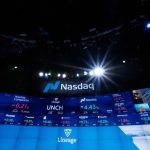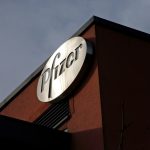Pfizer’s decision to offload $3.05 billion worth of shares in Haleon is a strategic move driven by shifting priorities in a volatile pharmaceutical market.
The transaction, involving 700 million shares priced at 357 pence each, reduced Pfizer’s ownership in the British consumer healthcare giant to 7.3%.
The sale price reflected a 2.75% discount to Haleon’s Tuesday closing price of 367.10 pence on the London Stock Exchange.
Haleon, known for brands such as Sensodyne, Panadol, and Advil, was created through the merger of GSK and Pfizer’s consumer healthcare businesses in 2019 and spun off as a standalone entity in 2022.
Pfizer’s evolving priorities
The sale forms part of Pfizer’s broader strategy to streamline its operations and refocus on high-growth areas.
Following the COVID-19 pandemic, the pharmaceutical giant has faced declining revenues from its vaccine and antiviral drug sales, forcing a reevaluation of its asset portfolio.
Selling a portion of its Haleon stake allows Pfizer to free up capital to invest in emerging therapeutic areas such as oncology, mRNA technologies, and rare diseases.
Moreover, activist investor Starboard Value’s pressure to improve shareholder returns has accelerated Pfizer’s divestment plans.
This reduction in its stake aligns with its strategy to focus on core pharmaceutical and biotech operations, reflecting a similar trajectory to GSK’s complete exit from Haleon in May 2024.
These moves underline the companies’ attempts to redefine their post-split identities.
Haleon: resilient but vulnerable
Haleon’s strong market performance in 2024, with a 17% rise in its share price, reflects investor confidence in its ability to deliver steady returns in the consumer healthcare space.
Yet, the company is not without challenges. In October, Haleon missed its third-quarter revenue forecasts, citing a stronger pound and weaker sales of Panadol in key markets like Australia and the Middle East.
These results have highlighted the firm’s vulnerability to currency fluctuations and regional demand shifts.
While Haleon remains a leader in its category, its reliance on legacy products raises concerns about sustained growth in an increasingly competitive market.
Global healthcare market
Pfizer’s divestment is part of a larger trend of pharmaceutical companies reevaluating their business models post-pandemic.
Haleon itself was created through the 2019 merger of GSK and Pfizer’s consumer healthcare divisions, and it was spun off from GSK in 2022.
The spin-off allowed both parent companies to focus on their respective priorities, with GSK leaning into specialty medicines and vaccines while Pfizer pursued pipeline innovation.
The ongoing consolidation in the healthcare sector highlights the tension between short-term financial pressures and long-term strategic goals.
For Pfizer, this means leaning into R&D-heavy areas with high potential returns, while Haleon continues to focus on the more stable—but slower-growing—consumer healthcare market.
The post Why Pfizer sold its $3 billion stake in Haleon appeared first on Invezz







